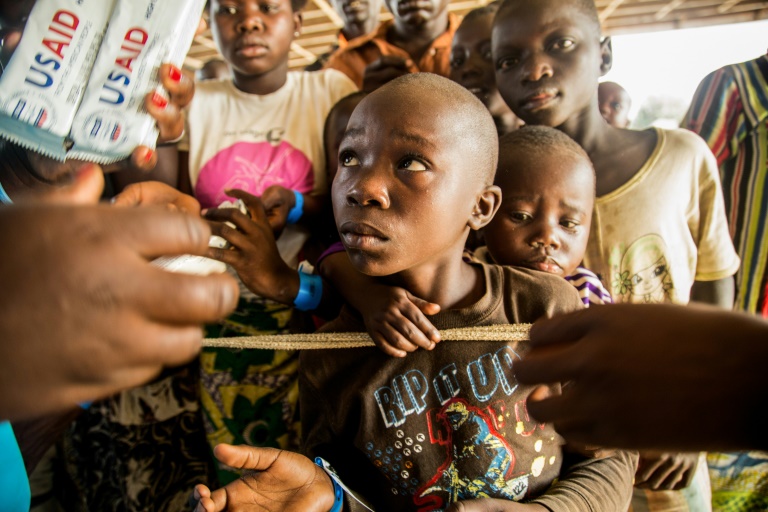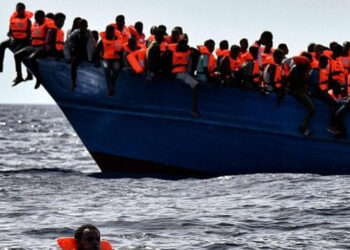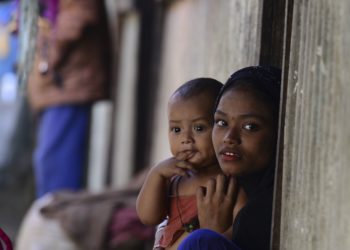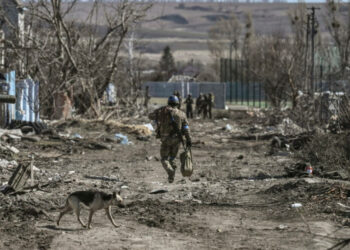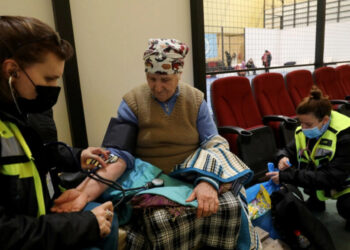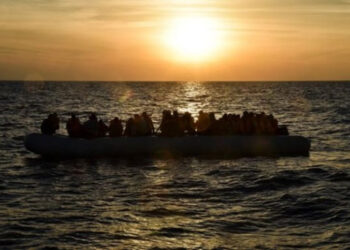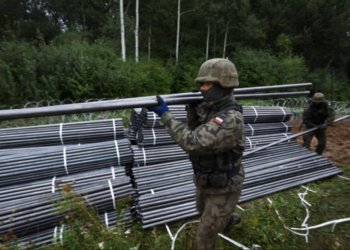Life fell apart last week for a mother of four who was among 200,000 Congolese attacked and then forcibly thrown out of neighboring Angola despite having lived there for a decade.
Speaking in Kamako, a frontier town in southern Democratic Republic of Congo, the woman in her forties said she and her husband had made their lives in the Angolan border town of Lupaca until the nightmare began.
“There were rumors circulating that the Angolan authorities would be expelling foreigners,” from Lunda Norte province which borders on DRC, she said.
“Suddenly on Monday (last week) we saw youths from the Tchiokwe community with Angolan policemen starting to burn the homes of those perceived to be foreigners.”
“When they came to our house, they attacked my husband with a machete and we were forced to flee taking whatever little we could carry,” she said.
“All our children were born in Angola and only speak Portuguese,” she said.
Amidst the chaos, the woman lost track of one of her children during the move.
“We are here in Kamako without money,” she said. “We are selling what little we have so that we can eat.
“My four-year-old child has disappeared and I sold my dress for $1.20 to pay for a radio announcement to help find my child,” she said.
Angola was a former Portuguese colony while DR Congo was ruled by the Belgians and is a francophone country.
Oil-rich Angola attracts many Congolese as it is relatively more stable and offers better employment prospects.
The Democratic Republic of the Congo has an abundance of mineral wealth but large swathes are rocked by unrest and violence unleashed by rebel groups and militias from within and neighboring nations such as Uganda and Rwanda.
The operations last week against migrants triggered clashes between Congolese, security forces and local Angolans.
Local media and an NGO reported that several migrants have been killed, though Angolan authorities deny any deaths or forcible repatriations.
Lunda Norte’s governor, Ernesto Muangala, on Saturday said that that “more than 200,000 Congolese living illegally in Angola have been repatriated on a voluntary basis.”
Trucks were seen plying incessantly over the weekend taking Congolese nationals to the border from Dundo, the capital of Lunda Norte.
Several Congolese patiently waited outside the Angolan consulate in Kamako, brandishing their Angolan residence permits. The doors of the mission were closed.
“What are we going to do in DRC? We have all lived in Lucapa for 10 or 20 years,” said Daniel Mukenge, a man in his forties.
‘We are Condemned to Death Here’
“Our papers are all in order. We have invested and built homes,” he said.
“Now the authorities are refusing to recognize the documents that they themselves delivered. We are now asking our authorities to intervene so that the Angolan authorities buy our houses otherwise we are condemned to death here,” he said.
An Angolan official at the consulate meanwhile told the group: “The solution does not lie here.”
And an Angolan immigration official at the Kamako border outpost feigned incredulity.
“How can these people refuse to go back to their country? It makes me laugh,” he said.
The Congolese authorities say they are struggling to cope with the returnees, with up to 1,000 arrivals every hour.
“At this rate, we cannot register them,” said Mahieu Boma, a local official from the national commission of refugees.
In Kamako, the new arrivals take shelter wherever they can – under mango trees, in schools and churches.
Sunday mass in many churches began late as a result of the influx.
“For the present, there are 750 families of between three and four people each who are sheltering in our facilities,” said Father Crispin Mfamba from the local Saint Gabriel parish.


